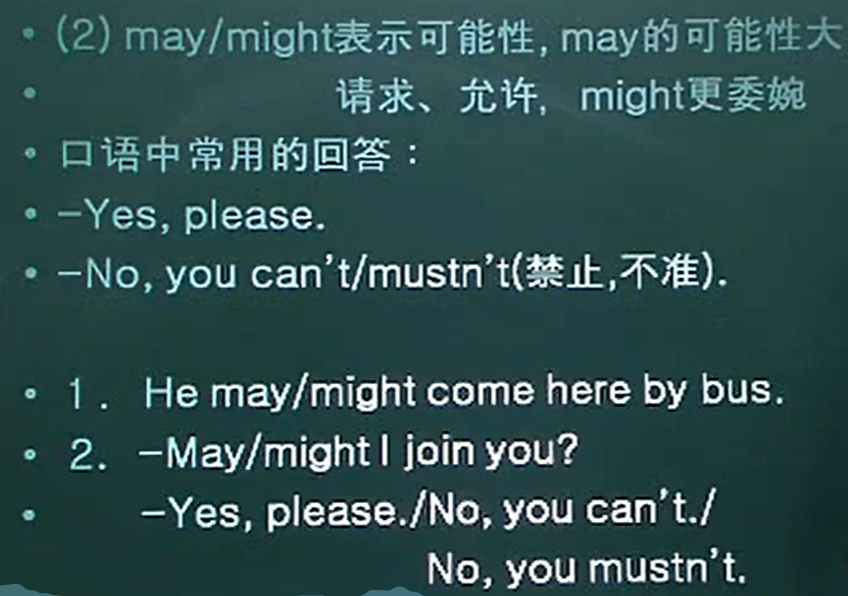第24讲 情态动词
can/could表示能力,用be able to代替can/could 现在/过去的能力,客观可能性,(can的可能性大),表示请求和允许
may/might表示可能性,may的可能性大,请求,允许,might更委婉,口语中常用回答:Yes,please. No, you can't/mustn't.

第25讲 情态动词
must/have to表示必须,必要(must表示主观多一些,have to表示客观多一些),have to有时态和数量的变化.must 和 have to二者的否定意义不大相同.
如:You mustn't go.你不准去.
You don't have to go.你不必去
should表示劝告,建议,命令,其同义词是ought to,should强调主观看法,ought to强调客观要求.在疑问句中通常用should代替ought to
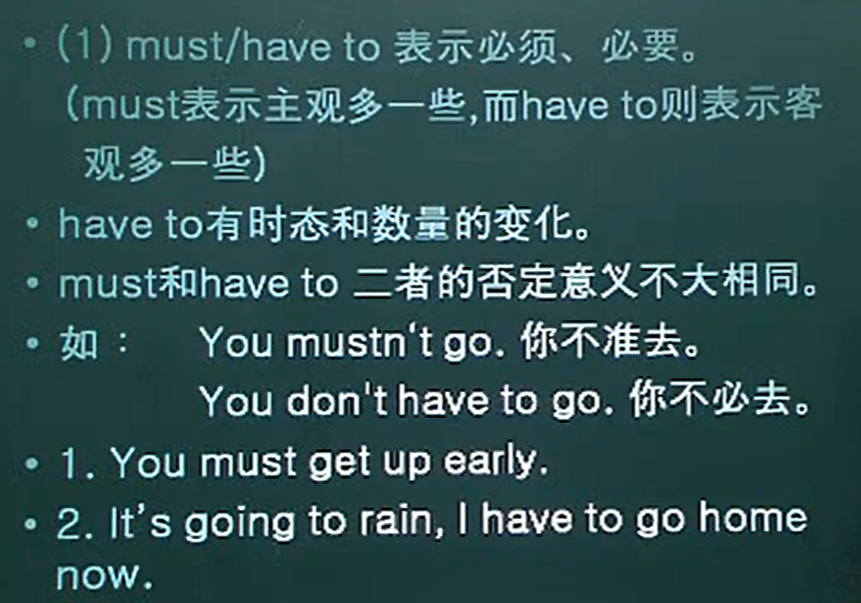
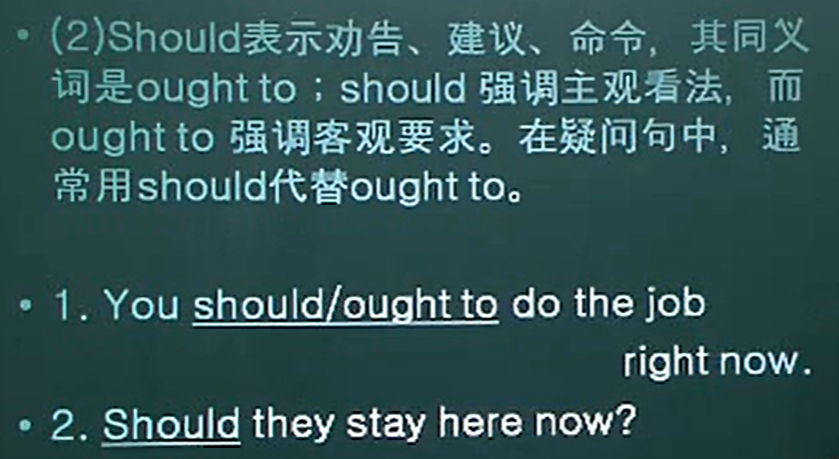
第26讲 情态动词
need 需要
a.情态动词
b.实意动词,有第三人称单数和时态的变化,后面可加带to的不定式
情态动词:
He need come here early
He needn't come here early.
实意动词:
He needs to come here early.
He doesn't need to come here early.
Does he need to come here early?
Yes ,he does .No he doesn't.
回答Must 和have to 的提问句时,否定式使用needn't, don't have to,等回答方式。
Must I come here early tomorrow?
No , you needn't /don't have to

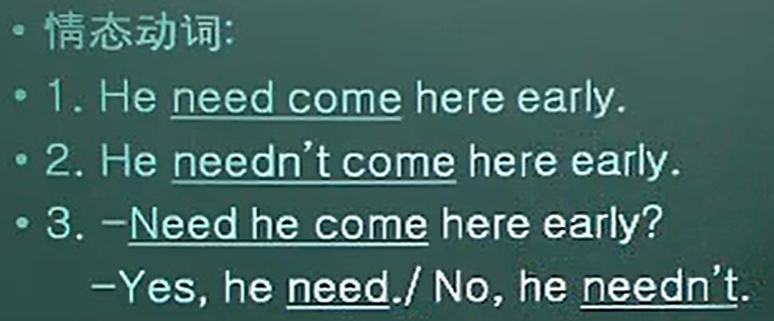
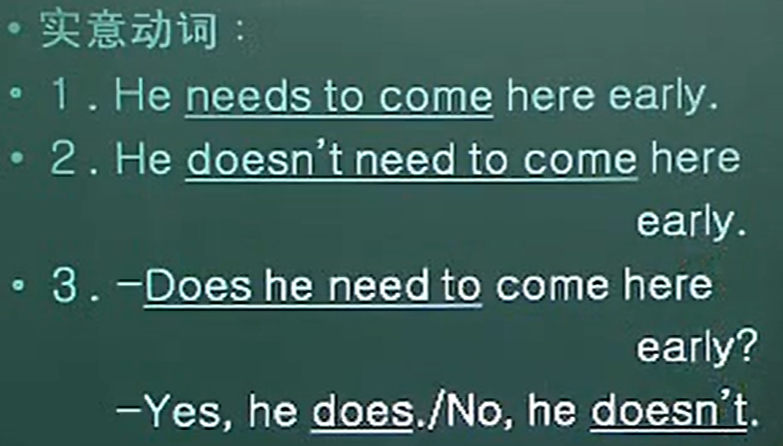
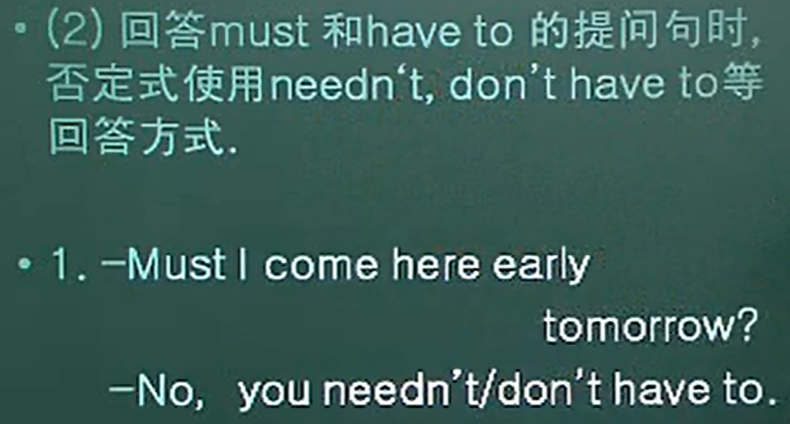
来源:oschina
链接:https://my.oschina.net/u/4454049/blog/3211353

